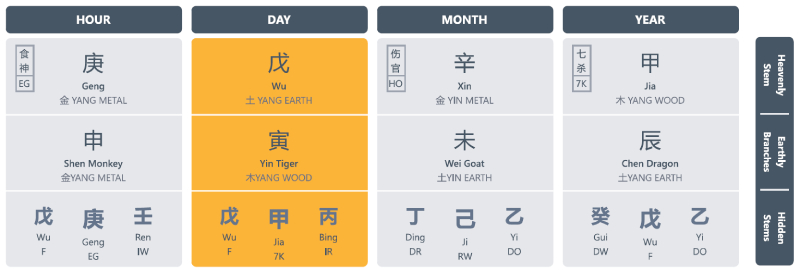In today's fast-paced world, we're surrounded by unprecedented comforts and opportunities.
Our medical facilities are more advanced than ever, our housing options have improved, and our financial prospects are generally better than those of our grandparents.
Yet, a puzzling question remains:
Why aren't we feeling more fulfilled, happy, and peaceful?
As someone who has personally consulted with over 600 individuals and spoken to at least 1,000 students in recent years, I've noticed a recurring theme in human behavior: patterns.
Just as nature follows the cycle of seasons and music adheres to certain tones and rhythms, we humans have our own emotional and habitual patterns.
Understanding these patterns is crucial to addressing the growing sense of demotivation and directionlessness that many of us experience.
The Root of Modern Stress
One common emotion that seems to plague our generation more than ever is stress.
But where does this stress originate? The answer lies in our expectations.
As we transition into adulthood, we're bombarded with societal pressures to achieve certain milestones: career promotions, luxury cars, spacious homes. All these aspirations require money, and the pursuit of financial success often pushes us out of our comfort zones.
It's important to note that stress, in moderation, is actually essential for personal growth. When we challenge ourselves and expand our mindset, we inevitably experience some level of stress.
The key is finding the right balance. While a manageable amount of stress can drive us forward, overwhelming stress can be paralyzing.
The Danger of Overwhelming Stress
When stress becomes too much to handle, our sympathetic nervous system kicks in, triggering the "fight or flight" response.
For many, the "flight" option leads to a loss of motivation and a feeling of giving up on life. This is where the downward spiral begins.
Each time we feel overwhelmed by a challenge, whether it's a missed deadline or a broken promise, we tend to engage in self-blame and negative self-talk. Over time, these moments of self-criticism accumulate, forming strong beliefs about our inability to succeed.
As this cycle continues, we may reach a point where we lose sight of who we are, what we want, and what our purpose in life might be.
Breaking the Cycle: Three Strategies for Self-Discovery and Motivation
Having experienced this struggle personally and observed it in countless others, I've developed three practical strategies to help break this cycle and rediscover motivation and direction in life.
1. Embrace the Power of Journaling

Journaling played a crucial role in my journey out of depression.
The process is simple yet profound: invest in a quality notebook and pen, and commit to writing one page every morning. Use this as a safe space to express your thoughts and emotions freely, without fear of judgment.
This daily practice serves multiple purposes. It helps you process your feelings, both positive and negative, and provides a record of your journey. Over time, you'll start to notice patterns in your thoughts and behaviors, leading to a deeper understanding of yourself.
Moreover, journaling can be a form of self-care and self-love.
By giving yourself this dedicated space and time each day, you're prioritizing your emotional well-being and creating an opportunity to reconnect with your authentic self.
2. Utilize BaZi for Self-Understanding

BaZi, an ancient Chinese wisdom tradition, offers a unique tool for self-discovery. By using your birth date and time, BaZi creates a chart that can provide insights into your innate talents, emotional tendencies, and even spiritual inclinations.
While some view BaZi as a fortune-telling method, I prefer to use it as a personal growth tool. Over the past decade, I've found it invaluable in helping me rediscover aspects of myself that had been buried under years of false beliefs and societal expectations.
The beauty of BaZi lies in its ability to cut through the layers of conditioning you accumulate throughout your lives. It offers a fresh perspective on your true nature, helping us reconnect with our inner gifts and potential. For many of my clients, this has led to profound breakthroughs in self-awareness and personal growth.
3. Prioritize Self-Love Activities

Creating a "Things I Love To Do" list can be a game-changer in cultivating self-love and motivation.
This list should include activities that bring you joy, no matter how simple they might seem. Whether it's watching a favorite show, enjoying an ice cream cone, or taking a leisurely walk in nature, the key is to identify what truly makes you happy.
Commit to spending at least 30 minutes to 5 hours each week engaging in these self-love activities. This dedicated time allows you to recharge, reconnect with your passions, and remind yourself of the simple pleasures in life.
The Impact of Consistent Self-Care
As you consistently practice these three strategies – journaling, exploring BaZi, and engaging in self-love activities – you'll likely notice a shift in your overall outlook.
Motivation will gradually return as you gain clarity about your desires and aspirations.
The fog of directionlessness will begin to lift, revealing a clearer path forward.
Remember, this is a journey of self-discovery and personal growth.
Be patient with yourself and celebrate small victories along the way. Each journal entry, each insight from BaZi, and each moment of self-love is a step towards a more fulfilled and purposeful life.
Conclusion
In our modern world, finding true fulfillment and happiness requires conscious effort and self-reflection. By understanding our emotional patterns, managing stress effectively, and implementing strategies for self-discovery and self-love, we can navigate the complexities of contemporary life with greater ease and satisfaction.
As you embark on this journey, remember that everyone's path is unique.
Experiment with these strategies, adapt them to your needs, and don't hesitate to seek professional help if you're struggling with persistent feelings of demotivation or loss of direction.
Ultimately, the key to a fulfilling life lies not in external achievements or material possessions, but in our ability to understand, accept, and nurture ourselves.
By investing time and energy in self-discovery and self-love, we can find the motivation and direction needed to thrive in today's world.













